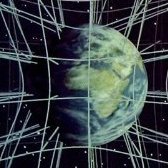Leaderboard
Popular Content
Showing content with the highest reputation on 04/02/21 in Posts
-
Loved your video, but here's where we disagree. I think there are mathematical patterns even in the cultural world. Wherever or whenever we don't understand them, I think it's because the pattern has not been discerned as yet. In that sense, I'm Platonic perhaps. I think mathematics underlies everything.2 points
-
Nice flamebait attempt. 😁 Speaking as one who is not a "religion fanatic", but was brought up Christian, my understanding is it is so called because Christians believe the sacrifice of Christ on the cross atoned for the collective sins of mankind and made a new contract with God. The word "good" is used in its now obsolete sense of holy.2 points
-
We don't need the pitches to sound together to sense the harmonic relationship between them. Also, I don't know about you, but I would find music built entirely out of consonant intervals unstimulating to say the least. Good music tells good stories and good stories need some level of conflict. You can't have a Beowulf without Grendel and his mum tagging along in the background.2 points
-
1 point
-
'Existence' is a word with 9 letters. And if you want to know about the concept behind the word, I think I showed that it depends on the context: existence of what? If you want a general definition you would get something like 'something exists if it can play a role in somebody's life'. And here you see something else: 'existence' is the substantivation of the verb 'to exist'. So the existence of what are you interested in? To give again another example: space and time. One could call them the 'stage' on which causal processes occur (Pity that Markus is away now, he surely had to say something about it from the viewpoint of general relativity...). But they themselves do not exist in the same way as physical objects or processes exist in space and time. Space does not punch a ball, neither does time. Asking for THE general, meaning of EXISTENCE, leads to nothing other than all kind of philosophical apories, getting people confused. And if you insist on one meaning, it will lead to some bad metaphysics.1 point
-
Yes, pity isn't it? Because the context in which somebody declares the existence of something is essential. 'Things' (the quotes are there to do a warm-up for what is coming...) exist in totally different ways, depending on the kind of 'things' we are talking about. So let's try a few examples, with my comments. Existence of a ball This would fall under what I would call physical existence. It means that a ball can exist independently from its immediate surroundings, and can play a role in causal relationships. It can be moved by another physical object, and it's movement can move other objects Existence of rain Rain is an example of a process. One could defend, a bit exaggerated, that if the above description of 'existence' is the only correct one, then rain does not exist: what exists are water drops (physical objects), falling down from clouds. But I think this comparison shows at least a difference with the previous one: without some physically existing things, processes cannot exist. Existence of a hole Holes cannot exist independently. E.g. if you have a cannon ball, you can completely remove all its surroundings, and it is still a cannon ball (fire it up to the sky with more than escape velocity, and it will further exist in vacuum). Remove the complete surroundings of a hole, and there is no hole anymore. 'Holes' are more or less a byproduct of what we conceive as normal. Say we have a golf ball, rolling over the lawn. The hole in which it drops is on one side very real: in the end, dropping is a physical process. But physically it is better described as the absence of supporting ground, as it is around the hole. Having the hole under the ball, the ball van continue its natural movement, which is following gravity. Existence of the one Ring One could say it has narrative existence. In cases of stories, e.g. one can even reach some kind of objective existence in these stories. One can answer questions about an imaginary object, and the answer can be right or wrong. "Does the one Ring of Sauron has a jewel in it?" If you read the Lord of the Rings, you know it hasn't. Does the Ring exist? Well, not physically, in our physical world. But it definitely exists in the context of the story. Existence of rules and laws Does there exist a law that you should drive on the right side of the road? In many countries (sorry Studiot ;-)), yes. But such 'human laws' exist in the sense that people made it, and act accordingly (and might be fined if they do not). Existence of laws of nature That is pity enough a very tough one. It is clear (otherwise science would not be possible) that there exist (!) regularities in nature. However the laws of nature are our formulations of these regularities. And we can be wrong about these formulations. But one could say they exist, at least in the sense that scientists discuss about them, technicians apply them, and describe at least partially the observations and experiments we have done. Existence of other cultural phenomena Does science exist? Science, from the viewpoint of 'existence', is a meaningful conglomerate of all the above. I think we could make this list longer and longer (I left out mathematics, that would become a topic in itself). But moral of the story is: there is no general concept of 'existence'. But in our daily life, using the concept, it often is pretty clear what we mean, and is not problematic at all. Seeing the concept 'existence' as something having a well defined meaning, leads to all kind of philosophical diseases. I think I have said nothing revolutionary in this post, but a lot of the confusion in such kinds of 'fundamental questions' arise because the seemingly simple structure of language put a spell on our way of thinking: in this case 'one word - one concept'). Philosophy is a way to free us from these kind of spells. Just having a philosophical opinion (or better an opinion about a philosophical subject) doesn't help a bit in reaching intellectual clarity. Psst... I think it is your Avatar...1 point
-
The fact that you suffer certain side-effects does not mean that other people experience the same side-effects.1 point
-
Some of us have object permanence, and realize that things still exist even when we aren't able to see/detect them.1 point
-
Two items to ponder: 1) Notes don't just stop: they bounce around the room as echoes and gradually fade. 2) We have pitch memory. Even when a sound fades into imperceptibility, we can still hold it in memory almost indefinitely. How long do you have to be parted from someone before you forget what their voice sounded like?1 point
-
I suppose you cited my previous comment. well, but interestingly almost the same styles may have wide ranges of fans while that mentioned music was not being supported. All in all you might be right. because there are some artists that have good musics ,but just one sample is good. ,,or I have not heard the more. for instance this one: although I enjoyed this, it is listened just over 2 million. I have more smaples but this one seems enough for now. thanks for stating your opinion.1 point
-
I'm guessing at a typo. https://en.wikipedia.org/wiki/Overtone And the idea of "concordance" or "consonance" is cultural, not mathematical.1 point
-
Consider this: Per joigus' post, any given structure tends to resonate with a series of acoustic waves that are an integer multiple of some fundamental frequency. That fundamental frequency along with the acoustic intensity gives us an idea of the physical size of the structure, and its proximity. New point: these resonances are related not only harmonically, but also in phase. Therefore if our ears detect a number of simultaneous frequencies that have a simple harmonic relationship and are in phase with each other, then we can reasonably deduce that they came from a single source - perhaps prey, perhaps predator. We could learn to match these complex sounds to precise sources critical to our survival. If we sense either phase shifts or non-harmonic tones within the sound, this indicates that there is more than one source object - useful to know if you are up against a single wolf or a pack. This suggests to me that our distant ancestors may well have learnt to associate simple harmonic waveforms as 'safe' and complex non-harmonic, out-of-phase sounds as 'dangerous'. Not much established science to back up this hypothesis. But it seems a reasonable one to explain why we find frequency ratios of 2, 3 and 5 'pleasant'. And since all twelve notes of the chromatic scale (at least in western music) are constructed from these three ratios (at least approximately), the roots of both harmony and melody seem to follow with some logical consistency.1 point
-
Just for the benefit of other users who are presumably going to waste a lot of effort here. I already explained what makes musical notes special --a reasonably centrally placed A major, which is quite audible for a large range of people, but possibly arbitrary as to its exact value--, and then the harmonics, which are defined as integer multiples or fractions of it. Also gave hints that the question is very old --goes back to the Pythagorean school--. I equally argued that light is very different, because we don't intuitively perceive it as "frequencies of something oscillating", although it is, in the last analysis. Also hinted to the fact that when you play a note after another, they overlap, and you notice that they are in sync. All these points went unnoticed. The OP doesn't seem to care one way or another. In fact, this thread could well end up being about gravity. Who knows.1 point
-
I don't think the intervals of the octave are arbitrary, actually. If you take a fundamental and consider its harmonics (say a vibrating string with one, two, three, four etc standing waves), you start to get the other intervals that make up the musical scale. For example a C fundamental will have a 1st harmonic of C at the octave above, but the 3rd harmonic will be G at the octave plus a fifth above, the 4th will again be C but 2 octaves up, and the 5th harmonic will be E, a major third up from that (I think: it is hard to remember exactly how it works). So it is not coincidence that the major triad in harmony has the tonic, fifth and major third in it. These pitches are all part of the same family of overtones, from an implied lower fundamental. From what I recall, most of the notes of the Pythagorean scale were derived in this sort of way. The pentatonic scale, I think, still has the intervals of the third and the fifth in it, so is not inconsistent with the same physical principles - unsurprisingly.1 point
-
Surely the point about octaves is that if you double the frequency you get something that resonates with the fundamental. And if you double it again, the same occurs. So doubling has a real significance, both from the point of view of physics and from the point of view of the hearer. In fact, when you play a certain pitch on any instrument, you also excite a whole series of so-called "overtones" at the same time, which are frequency multiples of 2, 4, 8 etc above the fundamental. You also get a sort of resonance at the fifth of the scale. It sounds, well, harmonious. Whereas if you play 2 pitches that are only a tone, or semitone, apart, you get no resonance but a harsh sounding beat frequency as the two pitches go in and out of phase with one another. So I do not think it is just a matter of convention. Doubling the frequency has a physical significance that the ear recognises.1 point
-
I mean, conservation isn't just some theoretical philosophy adopted by biologists. Yes, it often goes hand-in-hand with what a lot of people view as the ethical way to do things, but it has clearly tangible benefits for the environment and mankind. It's a forward-looking policy, concerned with doing as little damage to ecosystems as possible. Preventing trophic cascades, slowing down anthropogenic climactic change, preventing collapses of populations that serve as our food sources, stopping invasive species that will overrun environments, stopping the destruction of ecosystems that can theoretically yield new scientific advances (think medicines derived from aquatic compounds), etc. It's not just an issue of ethics, but one of pragmatism, too. It's also "easy" in that it's a policy largely concerned with keeping the status quo so there's minimal opportunity to accidentally completely ruin the environment. I've never heard of "antinatalism" before, but even if you think that's the most ethical thing to do, implementing it requires such high levels of human interference that I feel it would almost inevitably end terribly. I'm a vegetarian, so I have no lack of empathy for animals, but not only is it impossible to calculate all the variables needed to implement it and keeps ecosystems functioning, it's not within the realm of possibility, with the tools we have.1 point
-
I have studied GR in some detail, so I am aware of all these possible scenarios; by personality I also tend to be a “natural worrier” who easily gets anxious even over minor things and life events. In addition, I am an Aspie too. Yet I feel no sense of depression, worry or anxiety over the possibility of a cyclical cosmology. Furthermore, you need to remember that the observational evidence we have at the moment is much more consistent with other global topologies, and not a cyclical universe. I believe you when you say that you yourself might find such an idea depressing, but remember that this does not imply that others necessarily relate to the concept in the same way. Most of us here understand the notion of a cyclical cosmology well enough, but don’t find it depressing. I find that people often tend to miss the salient point of Schopenhauer’s philosophy - he did not advocate despair, depression, or absolute nihilism. The main point he was trying to make was about acceptance. It is strictly necessary to fully understand and acknowledge the inherent limitations of the human condition - such as the impossibility to permanently satisfy desires and craving, and the futility of constant strife towards some ideal utopia -, but then it is also necessary to accept them for what they are, and thus arrive at a position of peaceful coexistence with those limitations. Philosophical pessimism does not imply despair and meaninglessness. And of course, philosophical pessimism is only one possible life philosophy, which is by no means shared by everyone.1 point
-
Why not just stop thinking about it and say "It is out of my hands and what will be, will be." That's pretty much how I handle anxieties that I feel I have no control over.1 point
-
So why do your attempts at explanations deviate so much from the currently accepted models?0 points
-
Benefit is not needed, truth is needed. Everyone has their own benefit, the villain has it too0 points
-
For me there is only one ethical problem: the problem of the existence of a predator. The predator must be destroyed in its animal or human manifestation: a wolf, a parasite, a swindler. The source of evil on earth is the predator. Eating meat is immoral. The destruction of someone else's life is immoral. The problem with modern society is that these are cowards who do not try to stop the villain. There is no balance between good and evil. For example, the destruction of wolves will not lead to overpopulation of herbivores, because the food resource is limited, and fertility will decline. This is just myth designed for survive of evil The position of the pacifist is vicious as well as the ideology of Jains, Buddhists and Christians, passivity is serve to villain Good moral is moral of aryans: just kill villian Even if there is some kind of balance philosophically, then in reality it will not exist anyway. Once in Old Europe, cannibals and slave owners lived, they caught people and broke their legs so that they would not run away, they ate them and forced them to work for wear, there they find traces of trepanned skulls on living people, оnce upon a time people were brutally killed to extract adrenochrome. and so on. And what is this "philosophy" worth if you saw how your child is savagely killed?-1 points









